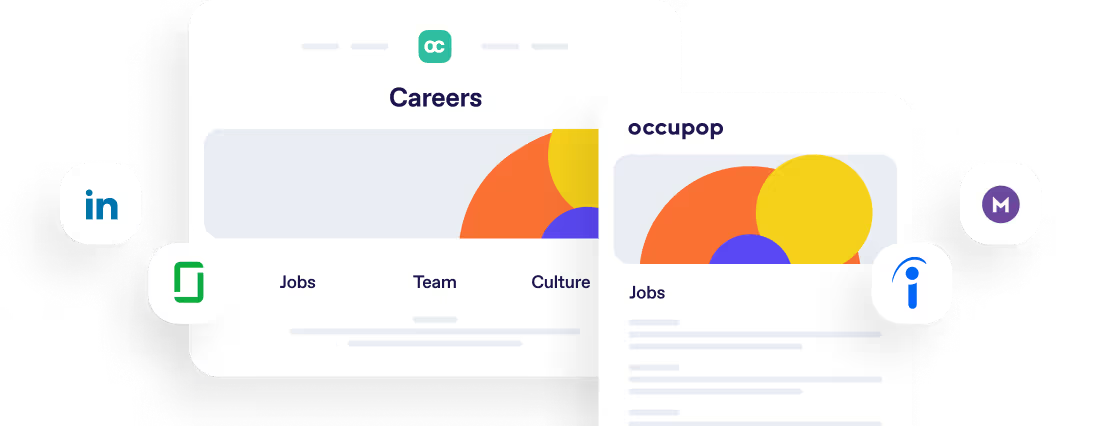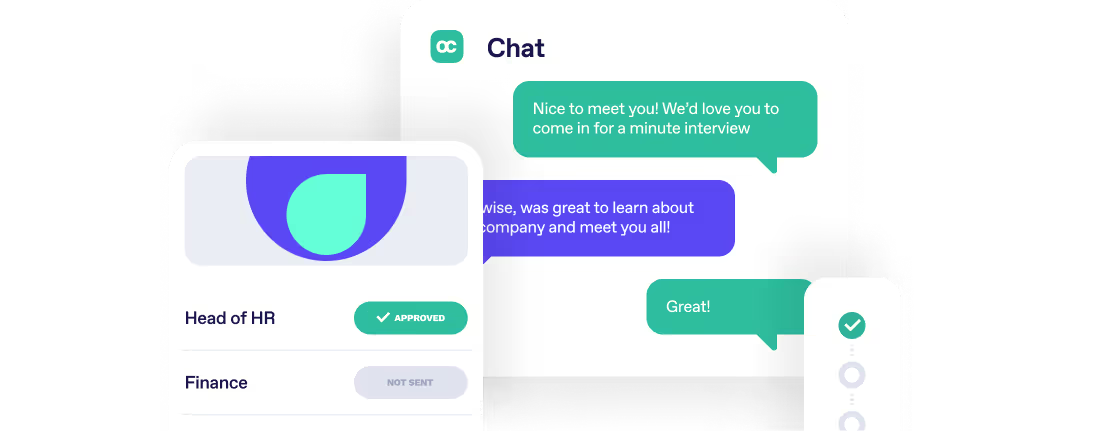5 Cost-Effective Job Perks SME's Can Offer to Attract & Retain Top Talent



Luckily, you don't have to be a big player or have a big budget to win over top talent with perks or benefits; you only have to know what they want! Current employees will appreciate and respond positively to even small gestures of trust and recognition (and will likely talk about these on review sites like Glassdoor.
A study by Aflac found that 60% of employees wouldn’t mind taking a job with lower pay if they were to receive better benefits so reviewing your benefits package and seeing where you can improve could attract those star candidates, improve retention and promote a strong company culture.
In this blog post, we discuss the 5 most desirable perks that are important to employees and candidates and how you can provide them without breaking the bank.

What are job perks?
By it's very definition, perk is to make something more lively, cheerful or interesting. In the perspective of a job perk or benefit, it is what a company can offer in addition to a salary in exchange for work. Work perks come in many forms from the more standard offerings such as pension, company holidays and transport support to the more unique such as doggy day care or weekly charity work placements for staff. In today's candidate driven market, perks can be the deciding factor in your top talent selecting you over a competitor.
Great cost-effective job perks for smaller businesses
1. Early finish Fridays/reduced working week
Finishing early on a Friday isn’t a new trend but one that goes a long way with employees, particularly those who have long commutes. Early finish Fridays are when the workday finishes, generally speaking, between 3-4pm, but there is a growing trend towards the four day work week, with Friday off entirely.
Where there is commonly resilience and apprehension on the matter due to fear of financial repercussions, this gesture of appreciation towards your employees is a great way to establish trust and to boost employee morale. According to ADP, 66% of employees say it increases their productivity levels. Recently, international speaker and executive coach, Ryan O'Reilly spoke on national radio on the matter and relayed the importance of implementing a modern working week and it's positive, rather than negative, impact on a companies bottom line, listen here.
2. Wellness benefits
Since employers have noticed the link between productivity and healthy, happy employees, wellness perks have become standard in most companies. The important consideration in relation to wellness is your individual employees needs and wants. What you offer can be very broad, from financial assistance to nutritional advice to bike-to-work schemes.
The best way to establish a holistic and employee-centric well-being strategy is to create employee wellness surveys. Luckily, there is software that can help you create personalised well-being strategies and wellness programmes. POWR, for example, is a digital wellness tool that is a part of the employee engagement software programme Wrkit. This tool asks employees to answer questions about the six key areas of wellness (life, mind, work, food, activity and sleep) and then assigns them well-being plans based on their individual answers. It also provides group challenges to inspire team collaboration and tracks company-wide data to help you gather insights for your future wellness programmes.
Though an initial investment, companies that undertake wellness programmes that employees actually see benefit from will save money long term as they won't be investing in programmes or activities that aren't of interest, with the added benefit of consideration to your employees well-being in, and outside of the work environment. This is something that goes a long way for employee retention but also attraction. According to Rand.org, over two-thirds of companies now offer wellness perks, so if you want to compete in today’s employment market, it’s essential you do too.
INSERT-CTA
3. A stocked kitchen
We all envy the likes of Google and Facebook for their unlimited snack stocks and on-site chefs. You may not have the same budget as these giant companies, but you can still provide a similar gesture that will be appreciated by all and can feed into employee wellness. Consider keeping the kitchen in your office stocked with things like a quality coffee machine, speciality tea, fruit and healthy snacks like energy bars - no professional chef necessary. While office bites may be a typical office perk, don’t overlook their ability to keep staff happy and alert during the day.
At Occupop, we receive a weekly delivery of healthy fruit and snacks from The Fruit People straight to our office. This is a great example of being able to provide this perk without costing a fortune. Their boxes are entirely customisable, leaving no employees snacking needs unmet.
Tip: Don’t forget to consider all different diet types when stocking up! i.e. Gluten-Free, dairy-free, vegan or other allergies and diets.
4. Flexible schedules
The Department of Work and Pensions’ family-friendly working hours task force found that over two thirds of employers saw an improvement in their recruitment and retention levels from having flexible working policies and almost two thirds of small and medium-sized enterprises saw a boost in productivity levels. It’s not surprising then that the trend for flexible working schedules is being embraced and implemented by companies of all sizes. Tech companies like Netflix are leading the way with their “make your own work schedule” policy.
Every employee is different. They each have various life commitments and commutes and their working schedules should allow for this. If your employees work in project-based roles or by deadlines, they may have no real need to be in the office or be online between certain hours. Support your employee’s work/life balance by offering these employees the option of flexible working hours.
A study by the University of Basel, Switzerland, and IAB, Germany found that granting your employees autonomy over their work schedules can dramatically improve retention rates and increase both employee and firm performance. Flexible hours also support employee mental health, promote gender equality, and as a perk, it’s arguably the most compelling way to attract millennial and Gen Z workers.

5. Working from home
Similar to flexible working hours, working from home is a trend that is here to stay. Vodafone’s research found that 77% of SME employees want to have the option to work from home, yet only 9% of SME owners are offering it as a perk. This large gap in supply and demand makes working from home an excellent perk you can give to stay competitive. Letting employees work from home even just 1 or 2 days a week is not only a fantastic way to signal to employees that you trust their work ethic, but it could potentially enable savings from reduced office costs and travel.
Half of the employees have remote working as a “must-have” requirement in their search for future jobs, and 34% would consider job-hopping in pursuit of it. Many job functions today are remote-friendly and with the technology such as Slack, Zendesk and HubSpot, remote working is simple and cost-effective to implement.
INSERT-LINE
Looking for more affordable ways to compete for talent? Since attracting talent begins with posting a job, having a cost-effective hiring software is a good place to start. Set your company up for success with recruitment software that works for you. Occupop provides a seamless application process for candidates, and with the help of A.I. technology, Occupop can significantly reduce your recruitment admin, time and costs, while streamlining the entire process.
See how we can help, at occupop.com.
Summary Points
You don't have to be a big player or have a big budget to win over top talent with perks or benefits; you only have to know what they want! Current employees will appreciate and respond positively to even small gestures of trust and recognition. 5 cost-effective perks SME's can offer to attract & retain top talent:
- Reduced working week: Where there is commonly resilience and apprehension on the matter due to fear of financial repercussions, this gesture of appreciation towards your employees is a great way to establish trust and to boost employee morale. 66% of employees say it increases their productivity levels.
- Wellness benefits: Since employers have noticed the link between productivity and healthy, happy employees, wellness perks have become standard in most companies. The important consideration in relation to wellness is your individual employees needs and wants. The best way to establish a holistic and employee-centric well-being strategy is to create employee wellness surveys
- A stocked kitchen: Consider keeping the kitchen in your office stocked with things like a quality coffee machine, speciality tea, fruit and healthy snacks like energy bars - no professional chef necessary. While office bites may be a typical office perk, don’t overlook their ability to keep staff happy and alert during the day.
- Flexible schedules: Every employee is different. They each have various life commitments and commutes and their working schedules should allow for this. If your employees work in project-based roles or by deadlines, they may have no real need to be in the office or be online between certain hours.
- Working from home: Half of the employees have remote working as a “must-have” requirement in their search for future jobs. Letting employees work from home even just 1 or 2 days a week is not only a fantastic way to signal to employees that you trust their work ethic, but it could potentially enable savings from reduced office costs and travel.
Simple. Beautiful.
Recruitment Software.
HR updates sent straight to your inbox
You might also like...


Manage your entire hiring process simply, from engagement to management, hiring and onboarding







Simple. Beautiful.
Recruitment Software.
Recruitment Software.






